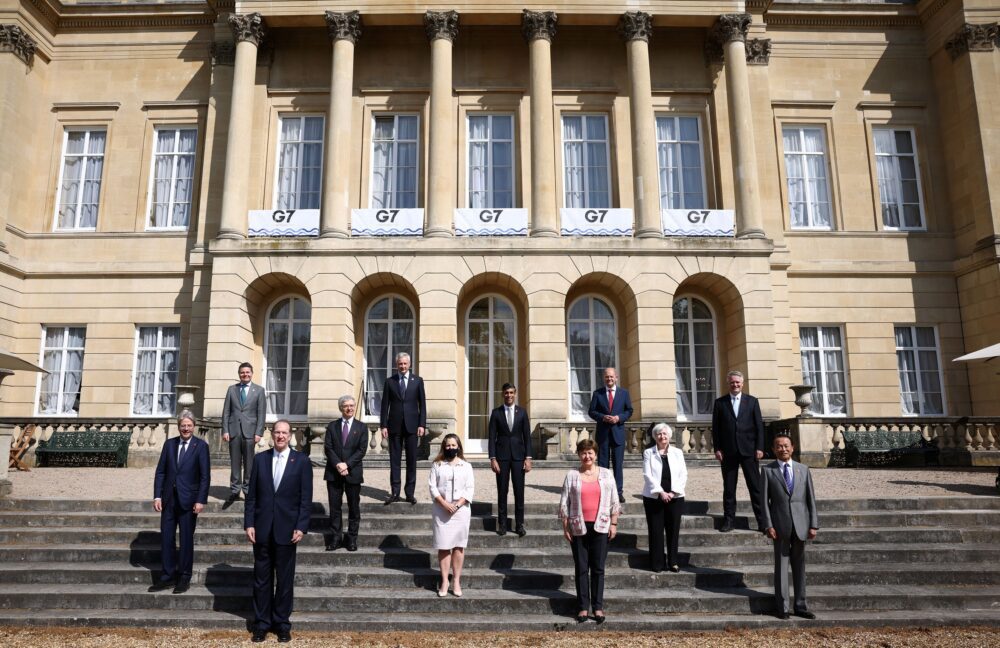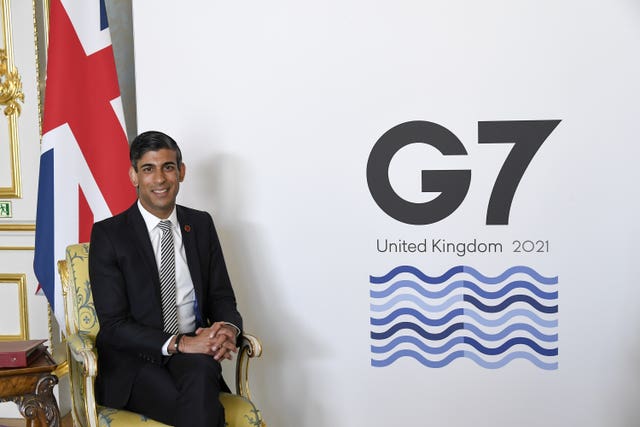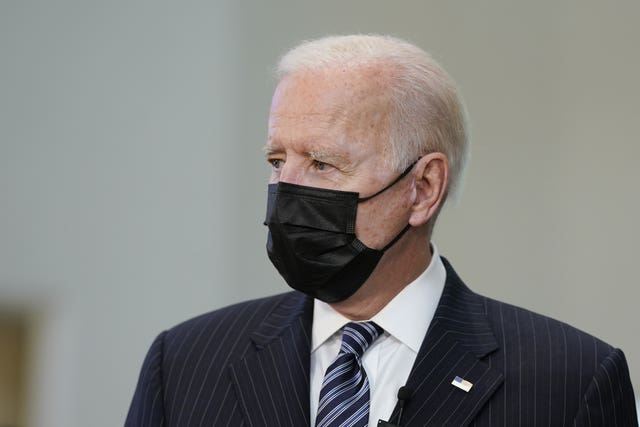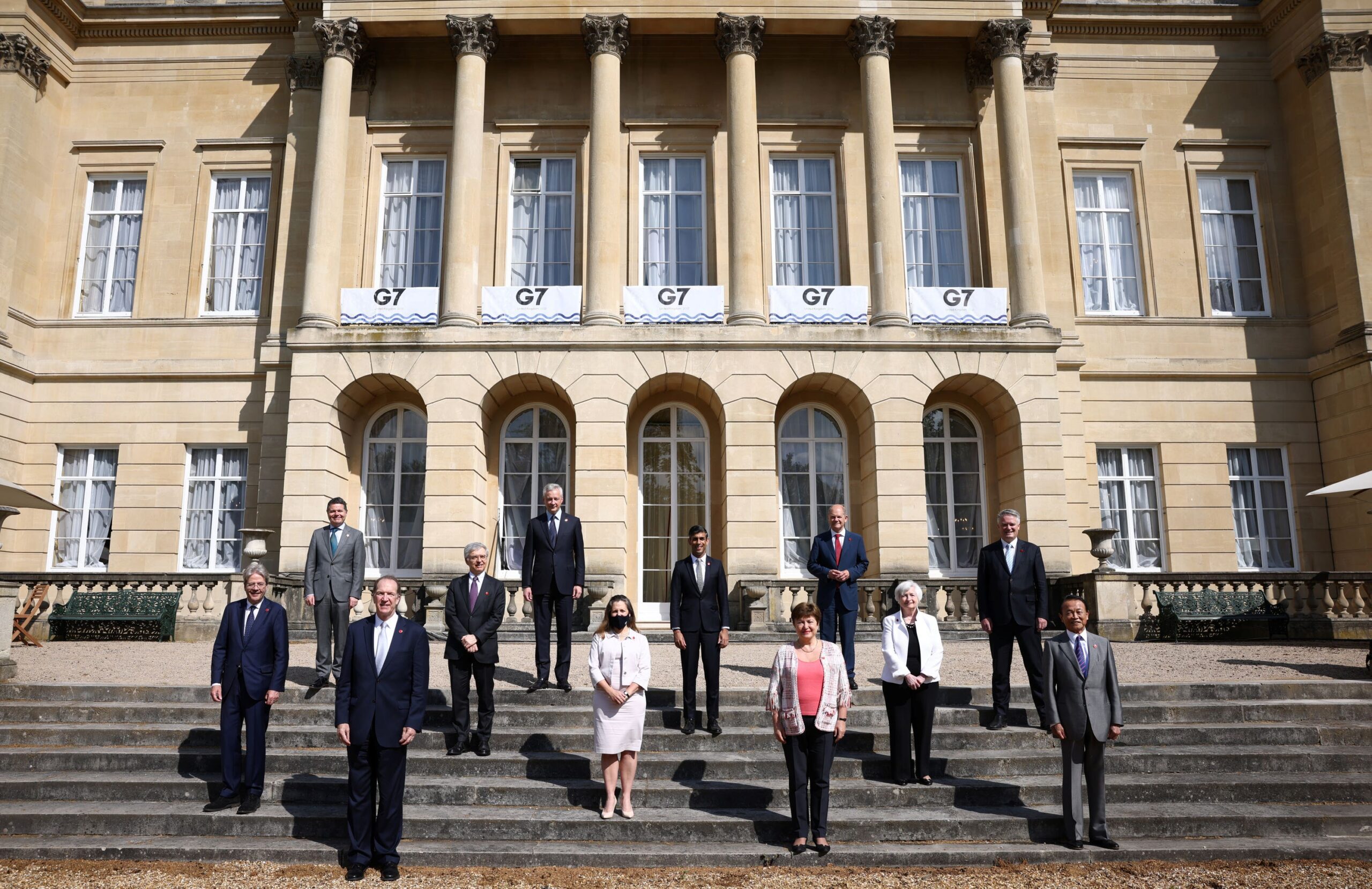G7 finance ministers have announced a “historic” deal to agree a global base rate for corporation tax and reforms targeting multinational companies.
Here is a look at what the changes mean and how they could impact the UK.

– OK so firstly, what did Rishi Sunak and co agree?
The seven finance ministers all signed up to a minimum global rate of corporation tax, the tax paid on company profits, of “at least” 15%.
A shake-up of the tax system will also be brought about to ensure major corporations, especially those with a strong online presence, pay taxes in the countries where they operate and not only where they have headquarters.

– Does this mean the NHS will get lots more money through tax revenues?
Yes and no. Corporation tax in the UK is already at 19%, so well above the minimum threshold agreed. And it is set to rise further still.
Chancellor Rishi Sunak announced in the March Budget that the tax on company profits would increase to 25% by 2023 as part of efforts to rebuild the public finances following record Government borrowing during the pandemic.
The Treasury, possibly for that reason, seems to be putting greater emphasis on the reforms to the tax system for major corporations, citing it as a “fairer system” that will allow the UK to raise “more tax revenue from large multinationals and help pay for public services”.
? At the @G7 in London today, my finance counterparts and I have come to a historic agreement on global tax reform requiring the largest multinational tech giants to pay their fair share of tax in the UK.
?The thread below explains exactly what this means. #G7UK pic.twitter.com/HdcK1HuM91
— Rishi Sunak (@RishiSunak) June 5, 2021
– What was the need for the proposed tax reform?
There have long been calls for the likes of online sales giant Amazon and technology powerhouse Google to pay a greater portion of taxes based on their sales in the UK.
Amazon sales in the UK soared by 51% to almost £20 billion last year as lockdown restrictions buoyed the e-commerce giant, with people forced to buy online due to Covid-19 restrictions.
Despite the boom, real estate adviser Altus Group said the retail giant had a tax to turnover ratio of just 0.37%.
– So how will the big firms be targeted?
The G7 group of countries, made up of the UK, the US, Canada, Japan, France, Germany and Italy, have agreed that the largest and most profitable multinationals will be required to pay tax in the countries where they operate – and not just where they have their headquarters.
The rules would apply to global firms with at least a 10% profit margin – and would see 20% of any profit above the 10% margin reallocated and then subjected to tax in the countries they operate.
– What now for the UK’s digital services tax?
Since April 2020, the Government has applied a 2% digital services tax on the revenues of search engines, social media services and online marketplaces.

But, reportedly under pressure from Washington, the Treasury has signalled it will ditch the levy when there is global sign-up for the reforms agreed on Saturday.
US treasury secretary Janet Yellen said there was an understanding that the tax reforms for big companies would go “hand in hand” with scrapping “objectionable” digital services levies that she said “targeted large successful” Stateside tech firms.
– Were there any other teething problems with getting this through?
There has been criticism in some quarters that the G7 backed down from an initial proposal from US President Joe Biden to have the base rate for corporation tax set as high as 21%.
However, even the White House incumbent had lowered his expectations in the run-up to the meeting this week, with 15% seen as the more realistic option.
The proposal is bound to stoke tensions in Dublin, with the Irish government having previously been reluctant to move away from its 12.5% corporation tax, one of the lowest in the European Union.
– Is this a done deal – will these changes definitely happen?
The proposals will now be discussed in further detail at the G20 financial ministers meeting – which will include the likes of China, Russia and India – in July.
It could technically be rejected there but Mr Sunak hinted that there could be scope for actually raising the minimum corporation tax rate at that summer gathering beyond the 15% agreed in London.
















